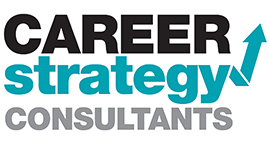Identifying Red Flags in Your Job Search: A Guide for the Cautious Candidate


Navigating the job market can be as intricate as a game of chess. While the prospect of a new job is exciting, it’s paramount to stay vigilant for warning signs that may indicate potential problems with a future employer. Here are some of the biggest red flags to look out for during your job search, along with strategies to help you uncover the truth and make informed decisions.
Vague Job Descriptions
A job description that’s ambiguous or lacking in detail can be a sign that the employer isn’t sure what they want or that the role may be a catch-all for numerous responsibilities not clearly outlined.
How to Clarify:
- Ask Specific Questions: Inquire about day-to-day responsibilities and how success is measured in the role.
- Seek Examples: Request specific examples of projects you’d be working on.
High Turnover Rates
If a company has a revolving door of employees, it’s worth considering why people are leaving. High turnover can indicate a variety of issues, from poor management to a toxic work culture.
How to Investigate:
- Check Reviews: Websites like Glassdoor can provide insights from past employees.
- Network: Reach out to current or former employees to get their take on the company culture and management.
Negative Atmosphere During Interviews
Pay attention to the general atmosphere and attitudes of your interviewers. If they seem disengaged, stressed, or unwilling to answer questions, consider why this might be.
How to Gauge:
- Observe Interactions: Take note of how employees interact with each other during your visit.
- Ask About Culture: Directly inquire about work-life balance, team dynamics, and company values.
Lack of Transparency
If an employer is reluctant to share information about company health, such as financial stability or strategic direction, this could be a cause for concern.
How to Uncover More:
- Request Information: Politely ask about the company’s growth, challenges, and future direction.
- Review Financials: For publicly traded companies, review annual reports and financial statements.
Poor Communication
Inconsistent or poor communication during the hiring process can be indicative of what to expect as an employee.
How to Respond:
- Follow Up: If responses are slow, follow up to gauge if this is a one-off or a pattern.
- Ask About Processes: Inquire about the communication flow within the company and how decisions are communicated to the team.
Rushed Hiring Process
While a quick hiring process isn’t always bad, it can sometimes mean the company is desperate to fill a role without properly vetting candidates — which might mean they’re dealing with larger issues.
How to Proceed:
- Take Your Time: Don’t be afraid to ask for more time to consider the offer.
- Ask Why: Inquire about the urgency and what has led to the immediate need for hiring.
Unprofessional Interview Process
An interview process that feels disorganized or disrespectful is a red flag. It may reflect the company’s overall approach to business and employee treatment.
How to Observe:
- Reflect on Your Experience: Consider how you were treated during the interview and if you were given an opportunity to ask questions.
- Seek Feedback: Ask how they felt the interview went and if they have any feedback for you.
Questions to Ask for a Better Understanding:
- Can you describe the company culture in three words?
- How does the company support professional development?
- What are the biggest challenges the team is facing right now?
- How is feedback given here?
- Can you tell me about the last person who held this position?
Conclusion
The job search is a two-way street, and it’s crucial to remember you’re interviewing the employer as much as they’re interviewing you. By staying alert to these red flags and asking probing questions, you can steer clear of potential pitfalls and find an opportunity that aligns with your career goals and values. Remember, a little due diligence goes a long way in your quest for the right job.

More Than Just Staffing
For Employers
For Individuals
